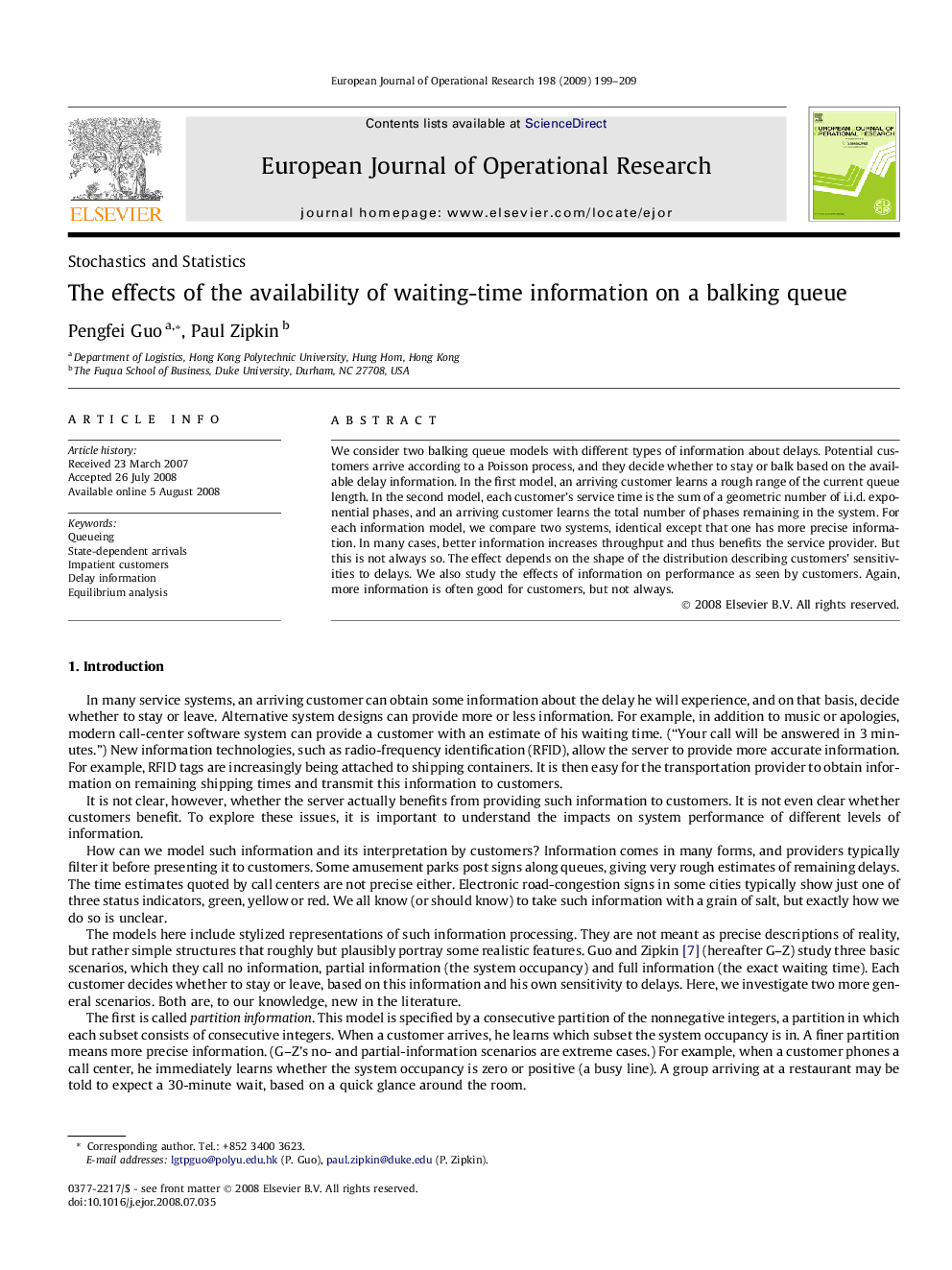| Article ID | Journal | Published Year | Pages | File Type |
|---|---|---|---|---|
| 482520 | European Journal of Operational Research | 2009 | 11 Pages |
We consider two balking queue models with different types of information about delays. Potential customers arrive according to a Poisson process, and they decide whether to stay or balk based on the available delay information. In the first model, an arriving customer learns a rough range of the current queue length. In the second model, each customer’s service time is the sum of a geometric number of i.i.d. exponential phases, and an arriving customer learns the total number of phases remaining in the system. For each information model, we compare two systems, identical except that one has more precise information. In many cases, better information increases throughput and thus benefits the service provider. But this is not always so. The effect depends on the shape of the distribution describing customers’ sensitivities to delays. We also study the effects of information on performance as seen by customers. Again, more information is often good for customers, but not always.
